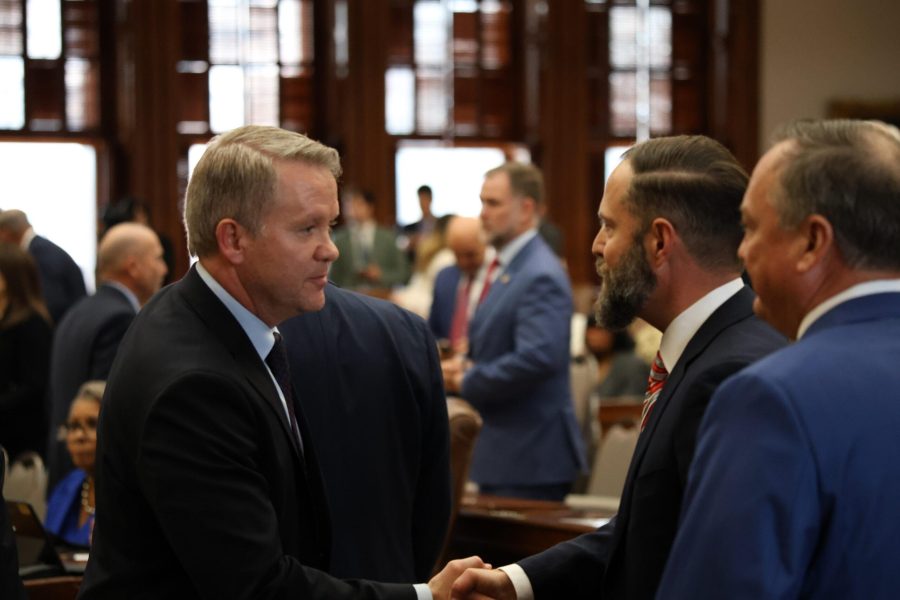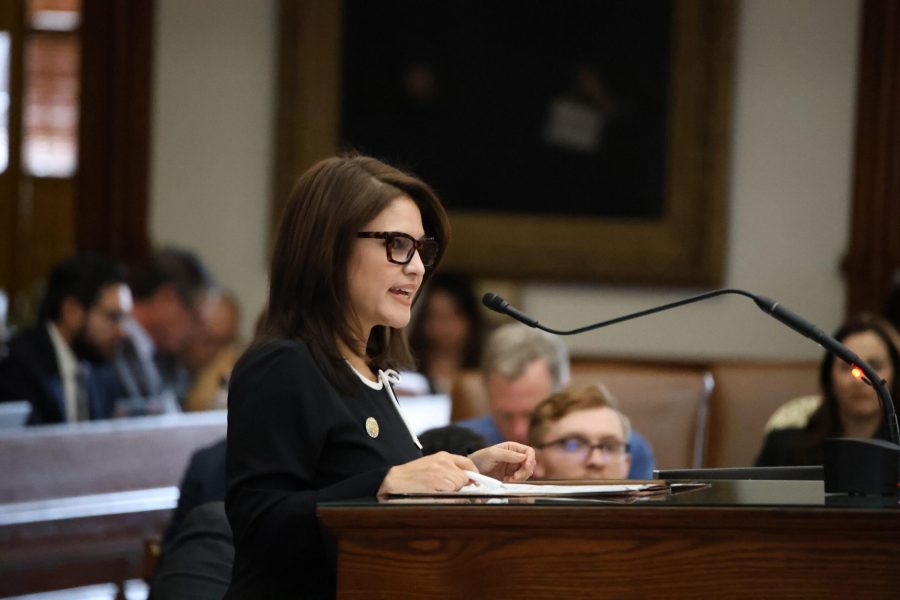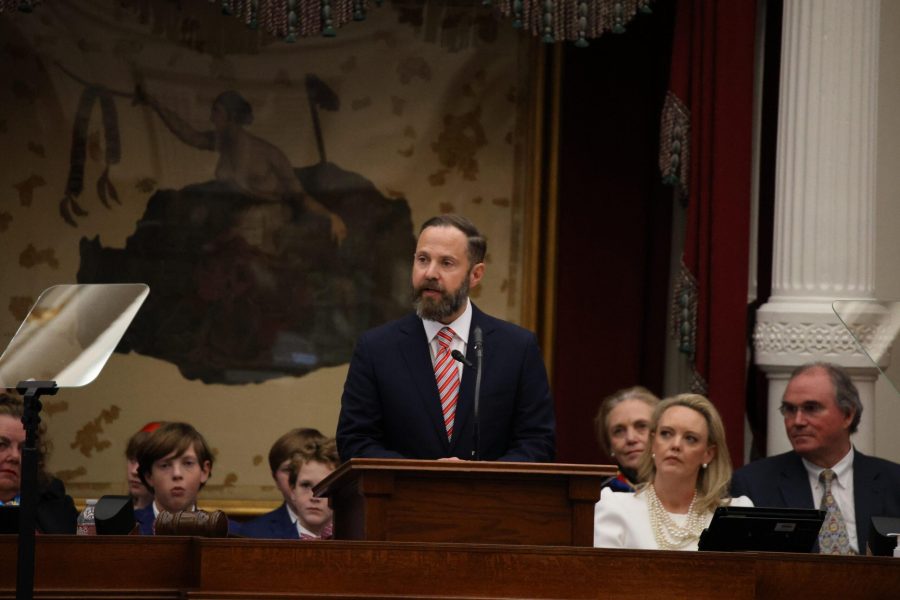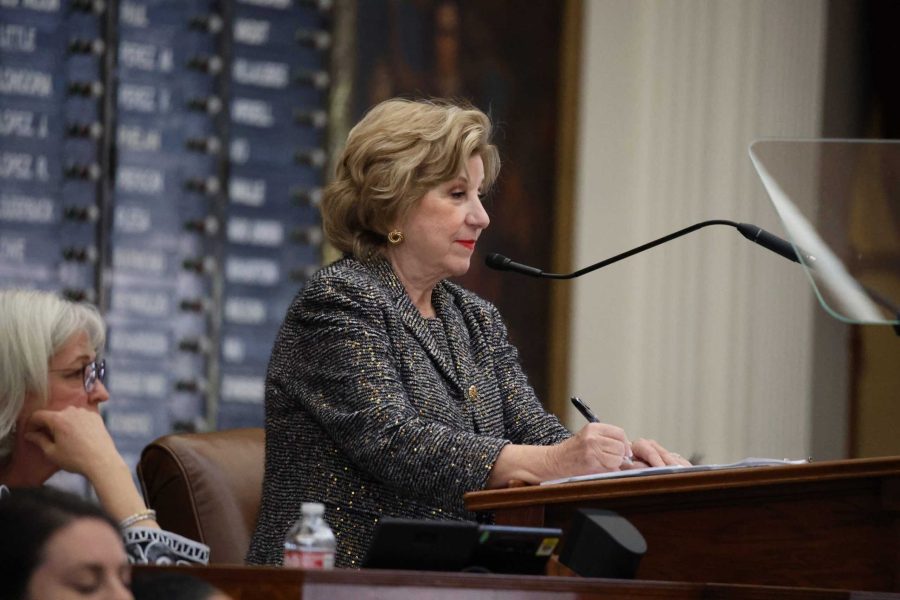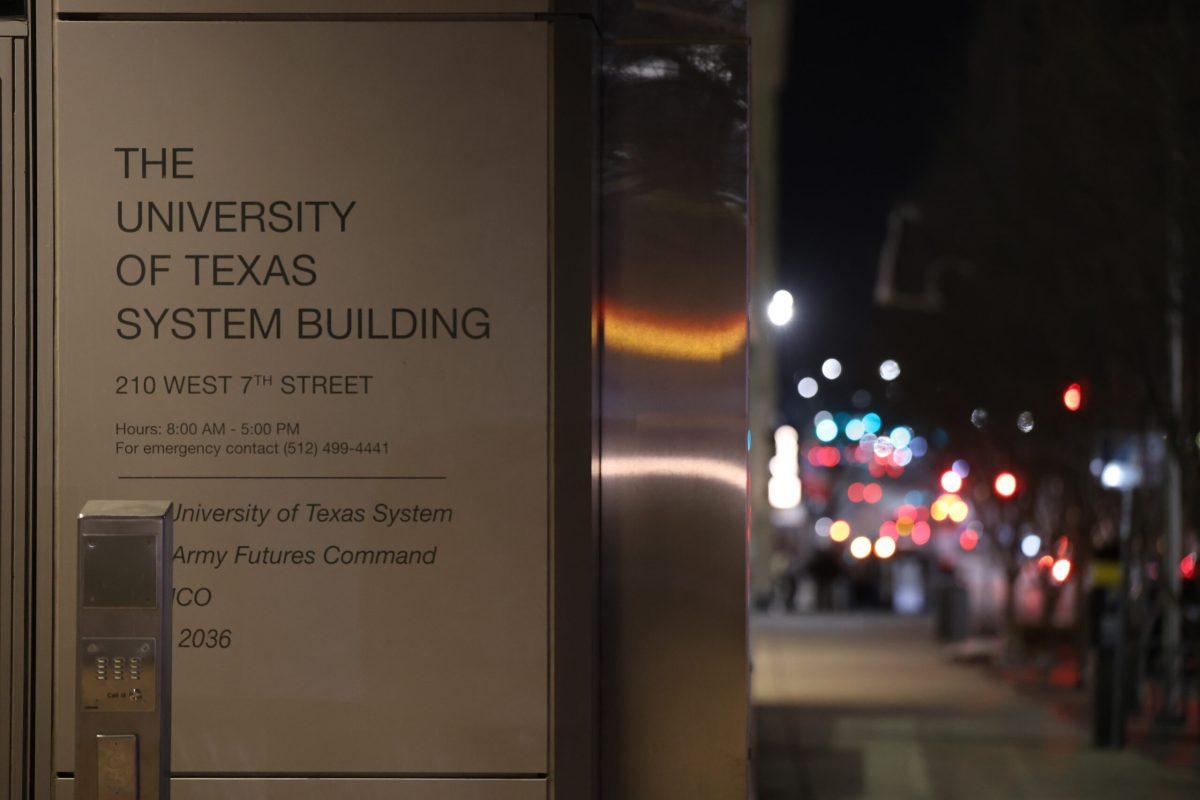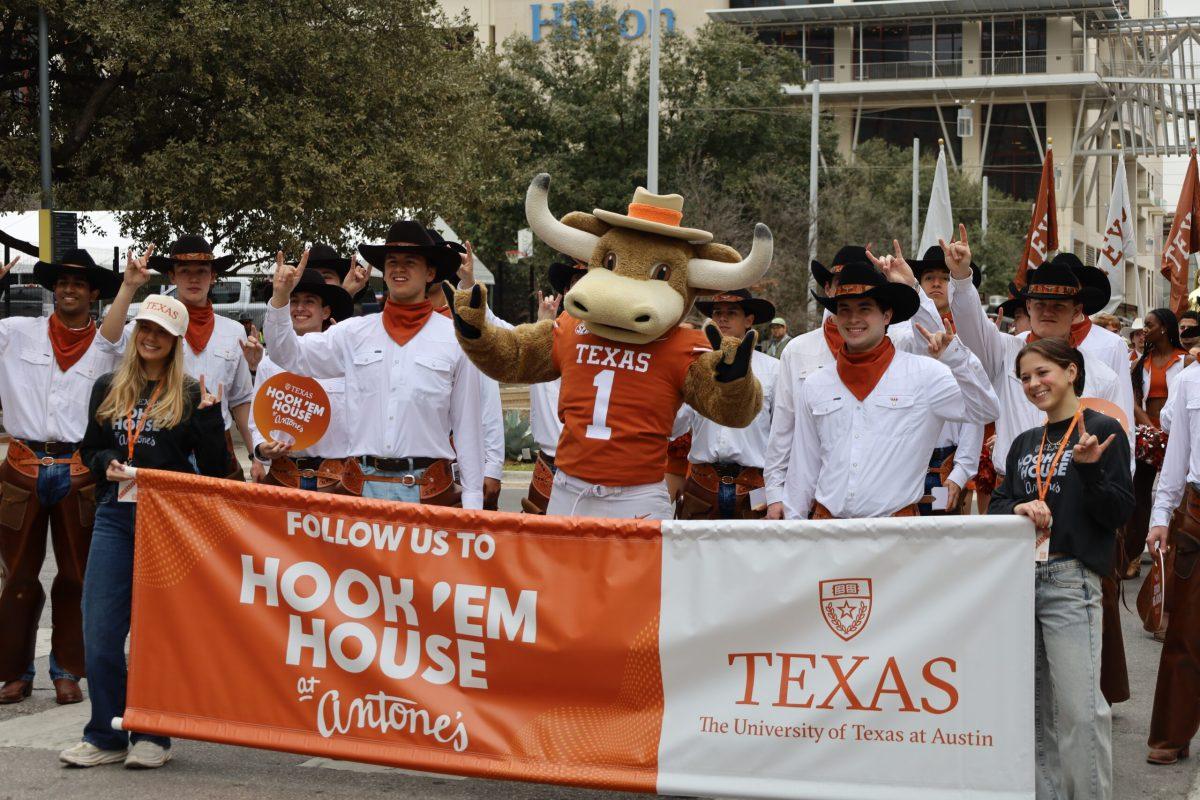The Texas House of Representatives elected Dustin Burrows as their new speaker on the first day of the legislative session Tuesday. Burrows defeated Rep. David Cook with bipartisan support in a runoff vote to win the speakership.
The vote ends weeks of uncertainty surrounding who would be the House’s new leader, following incumbent Speaker Dade Phelan’s December announcement he would not seek a third term. The Republican Caucus then voted to nominate Cook for the position. However, Republican Burrows announced that same day that he had the support needed to win the vote on the House floor.
“ The major difference that I see … between Speaker Burrows versus Rep. Cook when it comes to how they would have run the House is in a lot of ways their respect for the institution and the traditions that the House has traditionally been run under,” said Joshua Blank, research director of the Texas Politics Project.
Blank said that the uncertainty surrounding the speaker’s race on the first day of the legislative session is not common.
“ Most often what happens is that the person who is going to be the speaker announces, usually fairly far out from the legislative session, that they have the votes to be speaker,” Blank said. “Most often, the other potential candidates will quickly agree that that’s the case and the vote that we saw this week generally tends to be something of a pro forma exercise in which it’s already clear who the speaker is going to be.”
The major differences between Cook and Burrows is in their respect for the chamber’s traditions, Blank said.
“ Cook was running on a platform of changing the way the House operates and functions,” Blank said. “Rep. Burrows was offering something of a middle ground in the sense of a shift away from the way the House is traditionally run, which has been a little bit more bipartisan, but not a full shift away from that.”
Blank said that while it is an “open question” how divisions within the party will continue to impact the legislative session, a majority of issues the chamber takes up are not controversial.
“It’s easy to take these few areas of, I would say, acrimony and infighting and sort of project that as meaning that there’s only acrimony and infighting,” Blank said. “But the reality is most Republicans agree on most issues. That’s true in the legislature. That’s true in the electorate.”
In terms of the power the speaker holds, Blank said that while the speaker has a lot of power, they don’t have as much sway as many might think. Their power comes from committee assignments and routing legislation to committees.
“He doesn’t really have the ability, honestly, to bring legislation to the floor if they don’t have support from the chamber, and I think this is one of the big misconceptions about the Texas speaker,” Blank said.
Following the vote, newly elected Speaker Burrows addressed the House chamber.
“Each of you brings unique wisdom from the districts you serve,” Burrows said. “Our strength lies not in conformity but in how we harmonize these diverse perspectives into service for this great state.”

